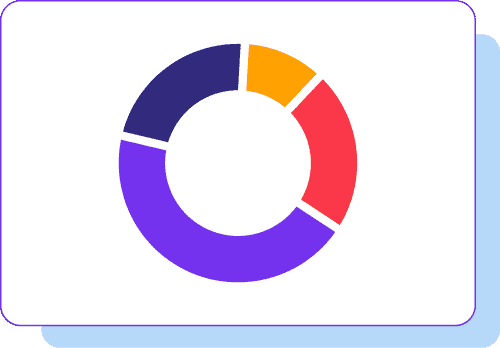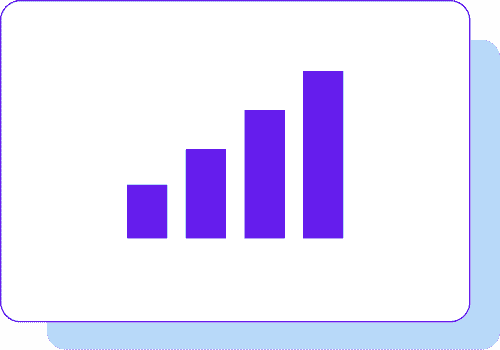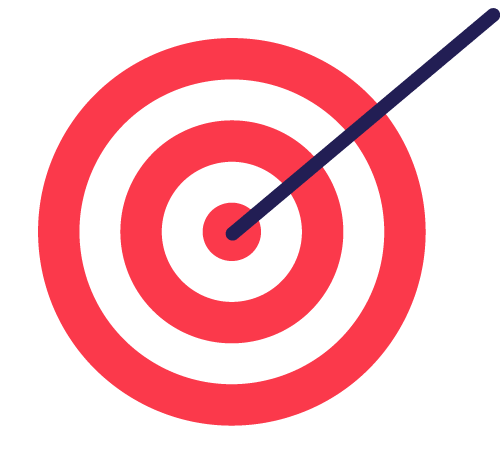In today’s digital age, the demand for skilled digital marketers is skyrocketing as businesses increasingly rely on online channels to reach and engage their target audiences. If you’re passionate about marketing and technology, pursuing a career in digital marketing can offer exciting opportunities for growth and innovation. Whether you’re a recent graduate, career changer, or seasoned professional looking to transition into the field, this detailed step-by-step guide will help you navigate the path to securing a job in digital marketing.
How to Get Into Digital Marketing?
To successfully enter the field of digital marketing, it is essential to possess a specific set of skills that are highly demanded in the industry. Research has highlighted the need for individuals to develop and demonstrate proficiency in digital marketing skills to effectively navigate the evolving landscape of marketing (Royle & Laing, 2014). Employers seek attributes such as motivation, time management, communication skills, and most importantly, digital marketing experience (McArthur et al., 2017). However, a significant gap exists between the demand for digital marketing skills and the actual proficiency demonstrated by individuals in the field (Langan et al., 2019).
Step 1: Self-Assessment and Skill Development
Before diving into the job search process, take some time for self-assessment to identify your strengths, interests, and areas for skill development. Digital marketing encompasses a wide range of disciplines, including search engine optimisation (SEO), pay-per-click (PPC) advertising, social media marketing, content marketing, email marketing, analytics, and more. Assess your existing skills and knowledge in these areas and identify any gaps that need to be filled.
Table 1: Self-Assessment Checklist
| Skills/Competencies | Self-Assessment |
|---|---|
| SEO | Basic understanding/Advanced proficiency |
| PPC Advertising | Familiarity/Hands-on experience |
| Social Media Marketing | Active user/Experience managing business accounts |
| Content Marketing | Writing skills/Experience creating and distributing content |
| Email Marketing | Familiarity with email platforms/Experience designing and executing campaigns |
| Analytics | Understanding of basic metrics/Ability to interpret and analyse data |
Table 1a: Key Concepts in Digital Marketing
| Concept | Description |
|---|---|
| Search Engine Optimisation (SEO) | Optimising website content and structure to improve visibility and ranking on search engine results pages. |
| Pay-Per-Click (PPC) Advertising | Placing targeted ads on search engines or social media platforms and paying a fee each time the ad is clicked. |
| Social Media Marketing | Promoting products or services through social media platforms to increase brand awareness and engagement. |
| Email Marketing | Sending targeted emails to prospects or customers to nurture leads, drive conversions, and build relationships. |
| Content Marketing | Creating and distributing valuable, relevant content to attract and retain a specific audience. |
| Analytics | Using data and metrics to track, measure, and analyse the performance of digital marketing campaigns. |
Step 2: Acquire Relevant Education and Training
While a formal degree is not always necessary for a career in digital marketing, acquiring relevant education and training can significantly enhance your prospects and credibility in the field. Consider pursuing a degree in marketing, communications, business, or a related field, or enrol in specialised courses, workshops, and certification programmes focused on digital marketing. Online platforms like Coursera, Udemy, and HubSpot Academy offer a plethora of courses covering various aspects of digital marketing.
To address the gap in digital marketing skills many courses have been developed over the last several years. It was made evedent that educational institutions needed to design and deliver courses that provide relevant and timely content, facilitating knowledge comprehension and skill acquisition in digital marketing (Spiller & Tuten, 2019). Additionally, students should be encouraged to gain autonomy in their coursework, allowing them to develop their interests in digital marketing while gaining a critical understanding of the field (Duffy & Ney, 2015). Furthermore, technical skills such as navigating paid search and paid social media platforms are essential, and educators must ensure that students are equipped with practical, real-world experience in using digital marketing tools (Rohm et al., 2021).
Table 2: Education and Training Options
| Education/Training | Description |
|---|---|
| Degree Programmes | Bachelor’s or master’s degrees in marketing, digital marketing, or related fields. |
| Online Courses | Self-paced courses covering specific digital marketing disciplines, often with certification options. |
| Workshops and Webinars | Live or recorded sessions offering in-depth training on specific topics or tools. |
| Certifications | Industry-recognised certifications such as Google Ads, Facebook Blueprint, and HubSpot certifications. |
Step 3: Gain Practical Experience Through Internships or Freelance Work
Hands-on experience is invaluable in the field of digital marketing, so seek out opportunities to apply your knowledge and skills in real-world settings. Look for internships, apprenticeships, or entry-level positions at digital marketing agencies, tech startups, or in-house marketing departments. Alternatively, consider freelancing or volunteering to gain experience working on digital marketing projects for small businesses, non-profit organisations, or personal ventures.
Table 3: Practical Experience Opportunities
| Opportunity | Description |
|---|---|
| Internships | Gain practical experience by interning at digital marketing agencies, tech startups, or large corporations. |
| Freelance Projects | Offer your digital marketing services on freelance platforms like Upwork, Fiverr, or Freelancer. |
| Volunteer Work | Donate your skills to non-profit organisations or community groups in need of digital marketing assistance. |
| Personal Projects | Create and manage your own website, blog, or social media channels to experiment with different strategies. |
Step 4: Build a Strong Online Presence and Personal Brand
In the competitive field of digital marketing, having a strong online presence and personal brand can set you apart from other candidates. Create and optimise your professional profiles on LinkedIn, Twitter, and other relevant platforms to showcase your expertise, skills, and accomplishments. Share industry insights, engage with thought leaders, and contribute to relevant discussions to establish yourself as a credible authority in the digital marketing community.
Table 4: Platforms for Building Online Presence
| Platform | Description |
|---|---|
| The leading professional networking platform where you can showcase your skills and connect with industry professionals. | |
| A microblogging platform ideal for sharing industry insights, engaging with influencers, and participating in relevant conversations. | |
| Personal Blog | Start a blog to share your knowledge and insights on digital marketing topics and showcase your writing skills. |
Step 5: Network and Apply for Digital Marketing Positions
Networking plays a crucial role in landing a job in digital marketing, so make an effort to connect with professionals in the industry and seek out opportunities for mentorship and collaboration. Attend industry events, webinars, and meetups to expand your network and stay updated on the latest trends and developments. Additionally, regularly search and apply for digital marketing positions on job boards, company websites, and professional networking platforms.
Table 5: Networking and Job Search Strategies
| Strategy | Description |
|---|---|
| Industry Events | Attend conferences, seminars, and networking events to connect with industry professionals and potential employers. |
| Online Communities | Join digital marketing communities and forums to engage with peers, seek advice, and stay informed about job opportunities. |
| Job Boards | Regularly search and apply for digital marketing positions on job boards such as Indeed, Glassdoor, and LinkedIn. |
| Professional Networks | Leverage your professional network to seek referrals and recommendations for digital marketing roles. |
Step 6: Prepare for Interviews and Demonstrate Your Skills
Once you start receiving interview invitations, it’s crucial to prepare thoroughly and demonstrate your knowledge, skills, and enthusiasm for digital marketing. Research the company and its digital marketing initiatives, practice common interview questions, and be prepared to discuss your relevant experience and accomplishments. Additionally, be ready to showcase your skills through practical exercises, case studies, or portfolio presentations to demonstrate your value to potential employers.
Table 6: Interview Preparation Checklist
| Preparation Task | Description |
|---|---|
| Research the Company | Familiarise yourself with the company’s products, services, target audience, and digital marketing strategies. |
| Practice Interview Questions | Prepare responses to common interview questions about your background, skills, and experience. |
| Showcase Your Portfolio | Prepare examples of your work, such as campaign results, content samples, or analytics reports, to demonstrate your skills and accomplishments. |
| Mock Interviews | Conduct mock interviews with friends, family, or mentors to practice your responses and receive feedback. |
Step 7: Continue Learning and Growing in Your Career
Securing a job in digital marketing is just the beginning of your journey in this dynamic and rapidly evolving field. To thrive and advance in your career, commit to lifelong learning and continuous professional development. Stay updated on the latest industry trends, tools, and best practices, and seek out opportunities for growth, mentorship, and leadership roles within your organisation or the wider digital marketing community.
Table 7: Professional Development Strategies
| Strategy | Description |
|---|---|
| Continuing Education | Enrol in advanced courses, workshops, or certifications to deepen your knowledge and skills in specific areas of digital marketing. |
| Industry Conferences | Attend industry conferences, summits, and workshops to network with professionals and stay updated on the latest trends and innovations. |
| Networking Events | Participate in networking events, meetups, and webinars to expand your professional network and seek out mentorship opportunities. |
| Leadership Opportunities | Volunteer for leadership roles within your organisation or professional associations to gain valuable experience and visibility in the industry. |
What Digital Marketing Skills are Important to Employers?
The skills required for digital marketing jobs encompass a wide range, including technical skills, oral and written communication, team/leadership skills, and creative problem-solving abilities (Kovács, 2021). It is crucial for students to develop these skills before entering the job market to effectively demonstrate their abilities in digital and social marketing (Johnson, 2022).
While the demand for digital marketing skills is evident, there are challenges in providing direct experience with digital marketing tools for students, highlighting the need for more experiential learning initiatives in this area (Canhoto & Murphy, 2016).
Digital marketing is not solely about understanding technology but also about comprehending how people use technology and leveraging it to engage with them effectively (Firdaus et al., 2022). This emphasizes the importance of communication skills and the ability to find and utilize digital information in the digital marketing domain.
The Importance of Developing Digital Marketing Skills In Education
The impact of digital technologies on marketing is evident in their ability to improve market analytics, pricing, and channel management, ultimately contributing to value co-creation with clients (Pascucci et al., 2023). As the digital landscape continues to evolve, marketing professionals are required to adapt their practices and develop expertise in managing digital platforms, digitalized consumers, and big data (Hafezieh et al., 2023). Educational institutions play a vital role in meeting the growing demand for marketing skills by integrating digital marketing into their curriculum and adopting effective teaching methods (Saputra & Fauzi, 2022).
Additionally, digital marketing provides opportunities to cut costs, increase visibility, improve customer relationships, and enhance market sensing, making it a crucial aspect of modern marketing strategies (Chinakidzwa & Phiri, 2020). This emphasises the importance of developing these skills both as an employer and a new candidate in this field.
Conclusion
By following these steps and strategies, you can navigate the path to securing a job in digital marketing and embark on a fulfilling and rewarding career in this exciting field. Remember to stay resilient, proactive, and passionate about learning and growing as a digital marketer.
Remember, the field of digital marketing requires a diverse skill set, including technical, communication, and problem-solving skills. This works both ways and more needs to be done by educational institutions and employers to bridge the gap between the demand for digital marketing skills and the proficiency of individuals entering the field. By providing relevant and practical learning experiences, individuals can acquire the necessary skills to thrive in the digital marketing landscape.
References
Canhoto, A. I. and Murphy, J. (2016). Learning from simulation design to develop better experiential learning initiatives. Journal of Marketing Education, 38(2), 98-106. https://doi.org/10.1177/0273475316643746
Chinakidzwa, M. and Phiri, M. A. (2020). Exploring digital marketing resources, capabilities and market performance of small to medium agro-processors. a conceptual model. Journal of Business &Amp; Retail Management Research, 14(02). https://doi.org/10.24052/jbrmr/v14is02/art-01
Duffy, K. and Ney, J. (2015). Exploring the divides among students, educators, and practitioners in the use of digital media as a pedagogical tool. Journal of Marketing Education, 37(2), 104-113. https://doi.org/10.1177/0273475315585826
Firdaus, F., Wahyuni, S. T., & Sumartono, E. (2022). Response about the importance of digital marketing skills for vocational teachers. JENTIK : Jurnal Pendidikan Teknologi Informasi Dan Komunikasi, 1(1), 1-5. https://doi.org/10.58723/jentik.v1i1.34
Hafezieh, N., Pollock, N., & Ryan, A. (2023). “hacking marketing”: how do firms develop marketers’ expertise and practices in a digital era?. Journal of Enterprise Information Management. https://doi.org/10.1108/jeim-12-2021-0530
Johnson, K. M. (2022). Soft skills needed by marketing majors upon graduation. Global Research in Higher Education, 5(3), p37. https://doi.org/10.22158/grhe.v5n3p37
Kovács, I. (2021). Digital marketing soft skills and university students’ perceptions of employability. GiLE Journal of Skills Development, 1(1), 25-36. https://doi.org/10.52398/gjsd.2021.v1.i1.pp25-36
Pascucci, F., Savelli, E., & Gistri, G. (2023). How digital technologies reshape marketing: evidence from a qualitative investigation. Italian Journal of Marketing. https://doi.org/10.1007/s43039-023-00063-6
Rohm, A. J., Stefl, M., & Ward, N. (2021). Future proof and real-world ready: the role of live project-based learning in students’ skill development. Journal of Marketing Education, 43(2), 204-215. https://doi.org/10.1177/02734753211001409
Royle, J. and Laing, A. F. (2014). The digital marketing skills gap: developing a digital marketer model for the communication industries. International Journal of Information Management, 34(2), 65-73. https://doi.org/10.1016/j.ijinfomgt.2013.11.008
Saputra, A. and Fauzi, M. (2022). The role of digital marketing for the indonesian inclusive boarding school. International Journal of Innovative Technologies in Social Science, (2(34)). https://doi.org/10.31435/rsglobal_ijitss/30062022/7825
McArthur, E. A., Kubacki, K., Pang, B., & Alcaraz, C. (2017). The employers’ view of “work-ready” graduates: a study of advertisements for marketing jobs in australia. Journal of Marketing Education, 39(2), 82-93. https://doi.org/10.1177/0273475317712766
Langan, R., Cowley, S. W., & Nguyen, C. A. (2019). The state of digital marketing in academia: an examination of marketing curriculum’s response to digital disruption. Journal of Marketing Education, 41(1), 32-46. https://doi.org/10.1177/0273475318823849
Spiller, L. D. and Tuten, T. L. (2019). Assessing the pedagogical value of branded digital marketing certification programs. Journal of Marketing Education, 41(2), 77-90. https://doi.org/10.1177/0273475318822686















